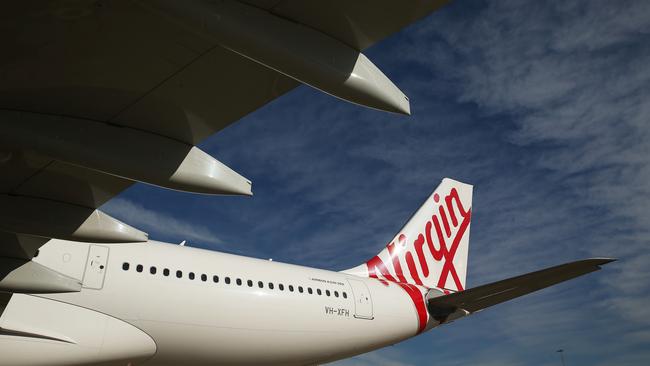
At least three of the bidders in the competition for Virgin Australia are understood to be planning to bring the airline out of administration with a reduced fleet.
This would involve shedding the airline’s Airbus aircraft and retaining smaller Boeing planes, according to sources.
As part of these short-listed bidders’ plans for the resurrected airline, international flights would be culled, with trans-Tasman routes the exception.
The vision of the final parties circling Virgin Australia — including BGH Capital, Bain Capital, Indigo Partners and Cyrus Capital Partners — is said to be at odds with that of Virgin’s existing management and voluntary administrator Deloitte.
Virgin Australia’s management plan involves maintaining international routes, while the airline and Deloitte have made their aspirations known to preserve as many jobs as possible and ensure payback to the largest number of creditors.
Qantas’s low-cost carrier, Jetstar, is said to be the most lucrative part of its overall operation, which is said to be part of the inspiration for bidders.
Some of the Virgin Australia planes are owned, while others are leased, and the expectation is that bidders will want to own as many of the aircraft as possible.
Under the plans by the majority of the groups on the shortlist, it is thought that the size of Virgin Australia could be reduced by about 25 per cent.
Bain Capital’s private equity and credit operations are working together for its bid, while Cyrus Capital Partners has about $US4bn ($6.1bn) worth of funds under management and may be keen to find a partner.
It counts former Jetstar boss Jayne Hrdlicka as an adviser.
The bid by US-based Indigo Partners is understood to be funded by US-based private equity firm Oaktree Capital Management.
Indigo’s interest is said to have come after the US group made an acquisition proposal to Virgin Australia’s board last year that was rejected.
The group is understood to have been interested in Virgin Australia for some time.
BGH Capital, which has had a team of 40 people working on a proposal for 6½ weeks, is keeping its game plan close to its chest, but has rejected suggestions it wants to create a Jetstar replica.
Meanwhile, Virgin Australia administrator Deloitte says the airline has $100m in cash, which is enough to keep the carrier operating until the end of next month when the sales process is set to conclude.
The airline is understood to have been in discussions with the federal government about securing additional financial assistance should it be needed after that period.
This includes measures such as advanced payments of the JobKeeper subsidy.
Some believe that any Virgin Australia funding shortfall could be solved by the existing senior secured lenders advancing more money to the airline, which would place them in what has been described as a “super senior” position.
The federal government offered additional funds to Ansett before that airline was liquidated, so another option is a loan from the Australian Office of Financial Management, part of the Department of Treasury.
So far, only so-called “desktop” bids have been lobbed, so no doubt a challenge for the international suitors will be putting forward binding offers without being able to send out key global executives for an on-the-ground inspection of what they are buying into.




To join the conversation, please log in. Don't have an account? Register
Join the conversation, you are commenting as Logout